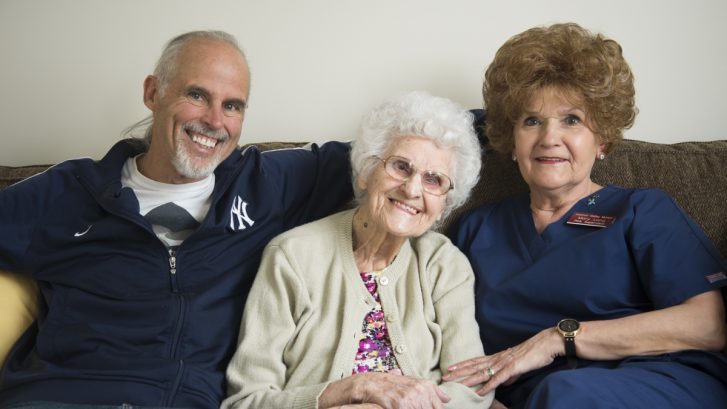Why Routines are Important for Seniors with Dementia and How to Start One
Dementia affects thought and memory, and it gradually reduces a person’s ability to plan, start, or finish an activity. It can be frightening or unsettling for people with dementia to lose their sense of time, lose track of thoughts, or forget where they are and what they’re doing.
For seniors with dementia, a daily routine can help promote a sense of familiarity and keep them grounded.
It can help combat short-term memory loss, which is often one of the first signs of dementia. Regular routines help seniors with dementia keep track of the time, their whereabouts, and what they’re doing. It can ease anxiety and reduce stress to help them stay calm as well as help ensure they complete essential daily tasks like eating or taking medication.
Routines are also helpful for caregivers, freeing up the question of what to do and leaving more time and energy for engaging with their loved one in meaningful ways.
Here are six tips for getting your aging loved into a daily routine.
- Keep it simple. If it’s too detailed, the routine will be harder to follow. Break your loved one’s day into chunks of time, leaving a little flexibility for unexpected events.
- Make it practical. Consider your current routine, and build around that. Maintain consistent times for the major activities of the day, such as waking up, bathing, dressing, meal times, exercise, TV time, and bedtime. Include periods of time for visiting and engaging in creative pursuits.
- Involve your loved one. While it may be easier to do certain tasks yourself, involve your loved one in daily activities as much as possible. Give your loved one simple tasks to complete on her own during mealtimes, dressing, bathing, and other activities to help keep her engaged and connected.
- Leave ample time. Allow plenty of time in the schedule for complex activities like bathing and meal time.
- Stay flexible. Too rigid a routine can backfire. Don’t worry about filling every minute of the day. Leave room for impromptu naps and spontaneous outings.
- Include time for yourself. You need a break. Caregiver burnout is a real and serious condition, and preventing it requires that you spend time alone, getting things done, spending time with your own family and social circle, and enjoying hobbies and leisure time without the pressures of caregiving. Whether you hire a companion for your loved one or enlist the help of other family members, having time to yourself is essential for ensuring you’re able to continue caring for your loved one.
At some point, caring for someone with dementia may become more than you can handle on your own. Memory care facilities help ensure your loved one stays safe, engaged, and following a routine for a greater sense of happiness and wellbeing.
